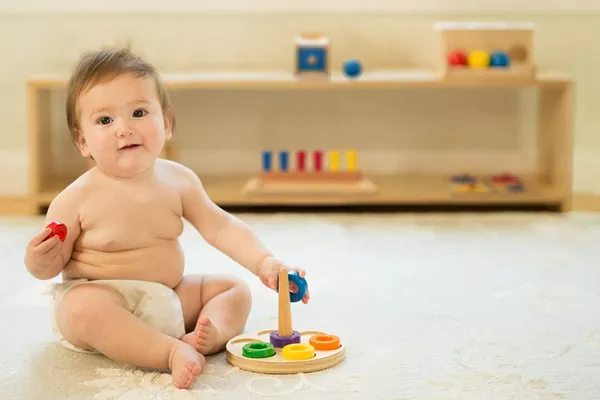Welcoming a newborn into the world is an extraordinary experience filled with joy and wonder. As parents, we strive to create a safe and nurturing environment for our little ones, and maintaining the ideal room temperature is a vital aspect of their well-being. In this comprehensive article, we will explore the importance of room temperature for newborns, factors to consider when setting the temperature, and practical tips to ensure their comfort and safety.
The Significance of Room Temperature for Newborns:
Newborns are highly sensitive to their surroundings, including temperature fluctuations. A proper room temperature helps regulate their body temperature, ensuring optimal comfort and promoting healthy sleep patterns. Maintaining an appropriate temperature range is particularly crucial during the first few months when infants are adjusting to the external environment and developing their thermoregulatory systems.
Recommended Room Temperature:
The recommended room temperature for newborns typically falls between 68°F (20°C) and 72°F (22°C). However, it’s essential to consider individual preferences and the climate in which you reside. Keep in mind that infants tend to feel warmer than adults, so it’s crucial to monitor their comfort level and adjust accordingly. Additionally, factors such as humidity and ventilation can influence the perceived temperature, so it’s important to strike a balance.
Factors to Consider:
Clothing:
The clothing your newborn wears plays a significant role in maintaining their comfort at a particular room temperature. Dress them in breathable, lightweight garments suitable for the prevailing conditions. Layering is a practical approach, allowing you to adjust their clothing based on the temperature fluctuations throughout the day or night.
Bedding:
Choose appropriate bedding materials based on the room temperature. Opt for breathable fabrics such as cotton or bamboo, which help regulate body temperature and prevent overheating. Avoid heavy blankets or excessive bedding to reduce the risk of suffocation or overheating.
Monitoring:
Invest in a reliable room thermometer to accurately monitor the temperature. This allows you to make necessary adjustments and ensure a consistent and comfortable environment for your newborn. Place the thermometer away from direct sunlight or heat sources for accurate readings.
Tips for Maintaining the Ideal Room Temperature:
Use Appropriate Heating and Cooling Systems:
During colder months, ensure that your heating system maintains a consistent temperature within the recommended range. If using space heaters, exercise caution to prevent accidental burns or overheating. In warmer weather, utilize fans or air conditioning to keep the room cool and comfortable.
Insulation and Draught Prevention:
Proper insulation helps maintain a stable room temperature and reduces the impact of external elements. Seal any gaps or cracks in windows and doors to prevent drafts, helping to maintain a comfortable environment for your little one.
Natural Ventilation:
Fresh air is essential for your newborn’s well-being. Open windows during mild weather to promote natural airflow and circulation. Be mindful of pollen or pollution levels in your area and ensure that the room remains free from irritants.
Regular Temperature Checks:
Regularly monitor the room temperature to ensure it remains within the recommended range. Check for any sudden changes that may necessitate adjustments to keep your newborn comfortable and content.
Observe Your Newborn’s Cues:
Pay attention to your baby’s cues to gauge their comfort level. Signs of overheating include flushed skin, sweating, or rapid breathing, while shivering or cold extremities may indicate the room is too cool. Observe their behavior, sleep patterns, and overall well-being to fine-tune the room temperature for their optimal comfort.
Conclusion:
Creating the perfect room temperature for your newborn is an essential aspect of providing a nurturing and comfortable environment. By maintaining a consistent temperature within the recommended range, considering individual preferences, and implementing practical tips, you can ensure your baby’s well-being and promote healthy growth and development. Remember, each baby is unique, so it’s important to monitor their comfort and adjust accordingly. With a little attentiveness and care, you can create an environment that fosters your newborn’s comfort, happiness, and overall sense of security.


